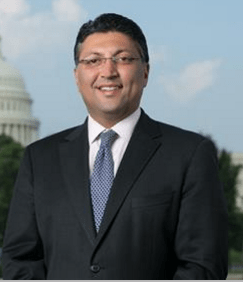
Delrahim
The top antitrust regulator in the United States partly blames CNN for helping AT&T and Time Warner outmaneuver the Justice Department and win approval of their merger, despite antitrust objections.
“We have some of the best and most dedicated public servants who tried this case, but we don’t have the same resources available to us,” Makan Delrahim, assistant attorney general of the United States and chief of the Justice Department’s Antitrust Division told Marketplace Morning Report. “We don’t have a 24-hour dedicated news channel to go out and spin your case to the American public and judges and others as some merging parties might.”
CNN is owned by Turner Broadcasting System, Inc., a division of Time Warner, Inc.
Delrahim admitted the government “is often the underdog in a lot of these cases, and we’re still considering our next steps and whether or not the government will appeal.”
AT&T and Time Warner clearly do not believe the government will further pursue the case, treating the merger as a done deal as the two companies move forward on combining their assets.
Delrahim complained about the judge handling the case, whose ruling excoriated the government’s case and strongly urged the Justice Department to not contemplate an appeal. In Delrahim’s view, the judge gave favorable weight to evidence from the two companies and dismissed much of the evidence the government presented.
“I think eight out of 10 judges may have treated this case differently,” he concluded.
 Delrahim expressed his general frustration with government antitrust regulators attempting to impose various deal conditions and limitations designed to mitigate a transaction’s anti-competitive harm in the marketplace.
Delrahim expressed his general frustration with government antitrust regulators attempting to impose various deal conditions and limitations designed to mitigate a transaction’s anti-competitive harm in the marketplace.
“If there’s a substantial lessening of competition, that’s the legal test, then the transaction is illegal,” Delrahim said. Instead of that simple test, the antitrust division often tries to rescue troublesome transactions with deal conditions he calls “microengineering an industry which is dynamic,” and in his view, is contrary to the role Congress assigned to the Antitrust Division. “I think the role is you go in, if there’s problematic aspect of a transaction, you divest and you let the market decide what the prices are now.”
“So the idea is: the greater the competitive process, the better the price ultimately will be, or the better the products will be for the consumer. And that’s where you have fair competition in the marketplace,” he added. “Our job is to police that. It isn’t to keep companies from getting too big. If they’re better at what they do, if customers like what they do, more power to them. The free market system encourages that. And we shouldn’t punish them once they have reached a certain level of success. If they are too big though, they also got to be careful. They can’t take anti-competitive practices that harms competition, which ultimately harms consumers.”


 Subscribe
Subscribe